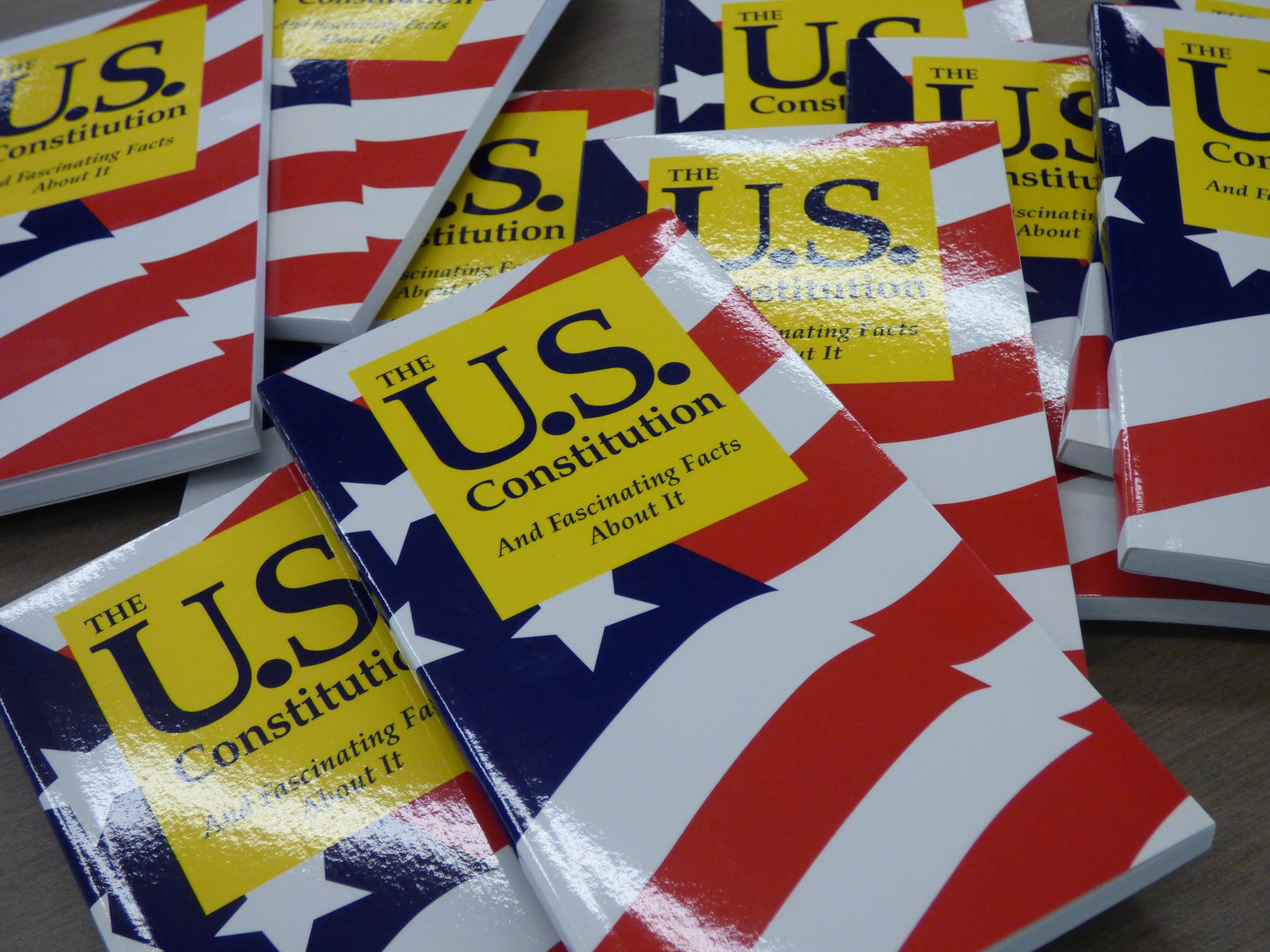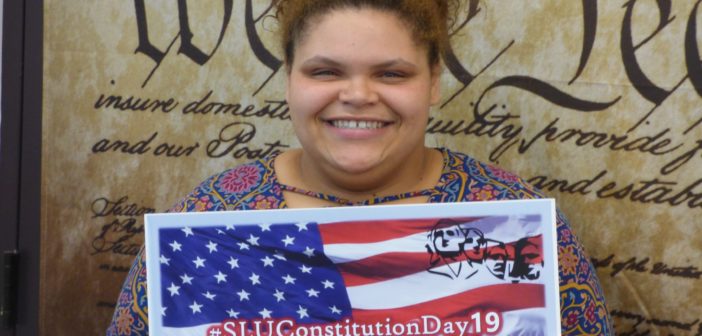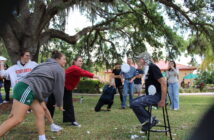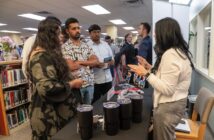By: Haley Robinson, Layout Editor
Thinking about the Constitution can elicit two different images: Nicholas Cage or the Founding Fathers. We already know what you are thinking, “Nick Cage was protecting the Declaration of Independence, and this article is about Constitution Day, they clearly have no clue about quality historical drama content,” that gripe aside why do we care so much about old, white dudes in powdered wigs writing up a bunch of documents? And why would we still care what they thought?

Students attended a very educational yet engaging on-campus event as part of Constitutional Day 2019
Constitution Day is celebrated on September 17 every year since 1787; this was the year of monumental changes. Some still wonder what the significance is of celebrating Constitution Day, more than 230 years after its adoption. The College of Arts and Sciences and the Department of Social Sciences helped students put this question and more to rest by hosting Constitution Day. The event encourages students and faculty to engage in dialogue and debate the hot topics on the Constitution, and relate the questions asked to a faculty based panel.
Conversation filled the air of the room as controlled substances, vaping, and its prohibition were being discussed. Assistant Professor of History Dr. Daniel DuBois talked about what Constitution Day does for the community, “[Constitution Day] offers our student’s the opportunities to learn about pressing legal and pollical matters as they pertain to their Constitutional rights as well as the country’s political history.”
This year’s topic was the Legalization of Marijuana, and the Policies on Controlled Substances. The panel consisted of five members: Dr. Phillip Neely Ph. D (Dept. Chair-Associate Professor of the Criminal Justice Department), Rafael Rosado-Ortiz, M.D. (Chair/Assistant Professor, Healthcare Management), Patricia Senger, Ph.D. (Associate Professor of Social Work), Kim Senger (Canadian Social Worker), and Craig S. Cleveland, D.B.A. (Chair, Department of Leadership & Management, Associate Professor of Management, Donald Tapia School of Business). This topic coincided with the College of Arts and Sciences theme this year which is the 1920’s. The faculty panel opened with Dr. Dubois giving some background on the Prohibition of Alcohol, and how it tied into how we handle controlled substances in Modern Day.
The panel was chaired by Dr. Frank Orlando (Political Science) and focused on one central question: Where the panel stood on the legalization of Marijuana for medicinal and recreational purposes? The answers were quite diverse; some panelists were against to the idea of Marijuana being used recreationally, some were advocates of using it to ween addicts off harder drugs, and some were supportive of its use as a CBD oil in the medical field. Once the panel was over, there was an open forum for students to ask questions about the topic. Many students and faculty brought up the recent negative health results of vaping, others asked about Marijuana regarding Criminal Justice Reform, and other students wanted to debate about how alcohol is just as addictive and dangerous as other controlled substances.
Rhiannon Flanagan, History Major and Philosophy Minor, says Constitution Day is a must-attend event for students. Flanagan explained how she believes that the differentiation in perspectives, between the panel and the students along with increased engagement makes Constitution Day a must-attend event.
Flanagan also gave her thoughts on vaping, and Juul culture on our campus, saying she has seen individuals vaping on campus and feels like it is a topic that people do not think of too negatively, especially with its positive connotation on social media.
Panelist Dr. Rafael Rosado-Ortiz, chair of the MBA in Healthcare Management Program, gave his thoughts on controlled substance education. Dr. Ortiz was asked, where he believes the e-cigarette industry is headed, which he was very vocal about. Ortiz talked about the non-aggressive manner the Tobacco Industry and the FDA were about warning consumers of the effects that vaping and juuling can have on the body. He additionally advised students to be very critical when doing research on any kind of controlled substance so they can, “understand the effects of the drug, where they are coming from, and the legalities of the drug so they can make an informed decision.”





